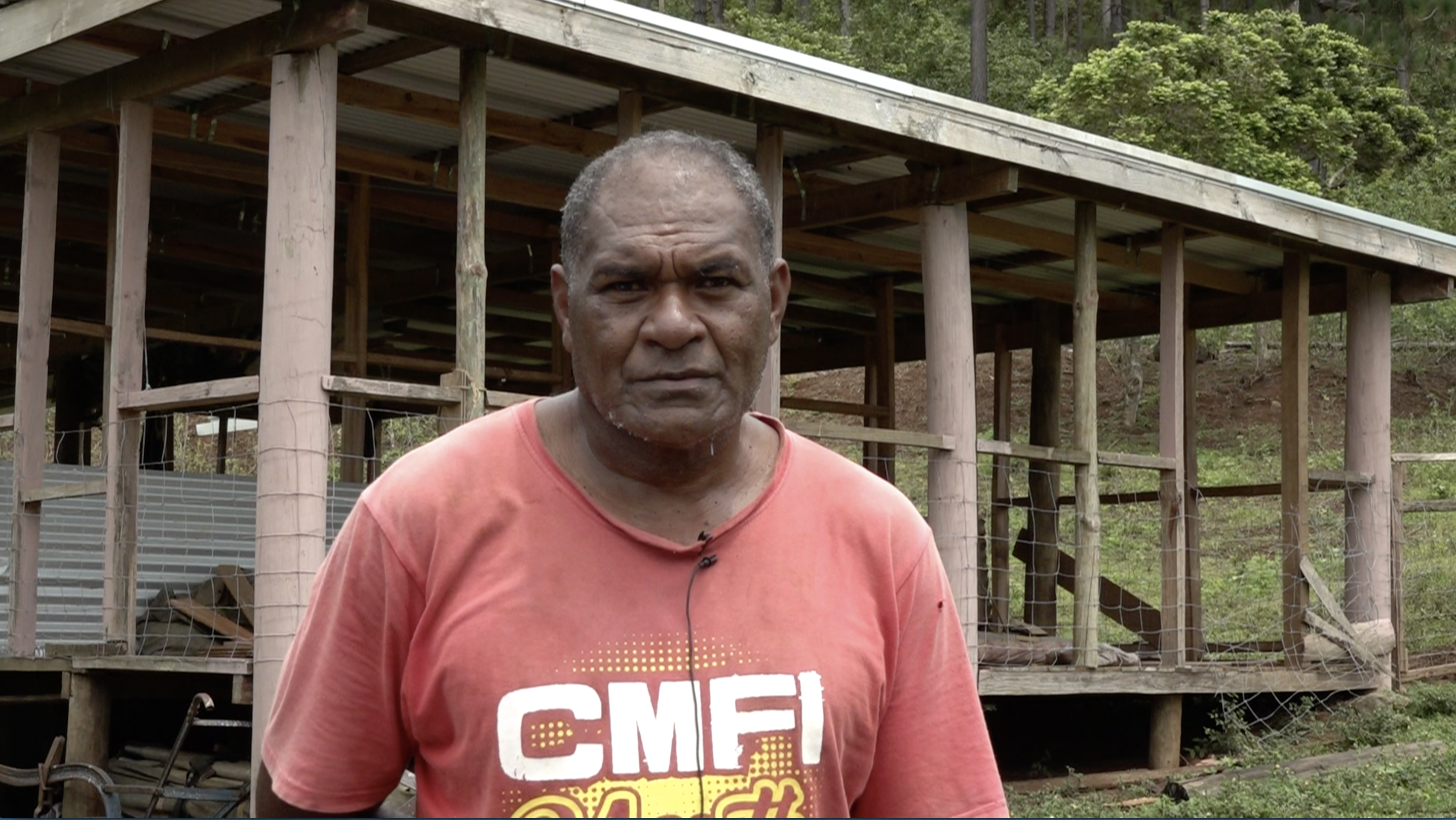Nalotawa Beef Farmer meets obligations through livestock farming

Picture: Sitiveni Drikalu at his beef farm in Vatawai, Nalotawa, Ba
A decision made 15 years ago to leave the civil service; a full time job to take up livestock farming, was one that beef farmer, Sitiveni Drikalu of Nanuku, Nalotawa, Ba has no regrets.
In fact, Sitiveni is at peace tending to his cattle that have become his source of livelihood at his more-than-15 hectares farm up in the highlands of Ba at Vatawai Settlement in Nalotawa, Ba. He has established such good relations with the landowners to the point that they have freely given him more land apart from what he has leased, if he requires to expand his farm, at no extra cost.
Reaching Sitiveni’s farm requires a 30-minute travel on a four-wheel drive vehicle up winding roads into the Ba Highlands for about 30kms, crossing a number of cool freshwater creeks then steadily climbing, noticing the difference in the air, which is fresh and crisp.
During the drive up, one cannot help but notice the breathtaking beauty of the lush and all-shades-of-greenery of the Highlands, which is similar to traveling up to Nadarivatu, although not as long or as steep, yet, beautiful all the same. At the end of the road to Vatawai Settlement is where you will find Sitiveni and his beef farm.
Speaking in i-taukei, Sitiveni explained he began his cattle farm when he left the civil service in 2007. He was assisted by the Ministry of Agriculture with fencing materials. He sought the help of youths from his village to help build his fence when he first started. Apart from that, he is the only one who works on his farm.
He expressed his gratitude to the Government for helping him that allowed him to develop and expand his farm. He added, just through his farm he has been able to build his home, look after the education of his family, and meet his communal obligations.
He advised those with land that had yet to be utilized to develop it so that it could become a source of income-generating opportunity.
Today, he has a herd of about 50 cattle and over 100 sheep.
He said it was important to tend to one’s livestock regularly, if not daily, so they would not forget their owner’s smell. Further, he said, if one did not make the visit often, the cattle would not heed their owner’s call.
Sitiveni does not face major issues when it came to his livestock except sometimes his sheep would sometimes fall sick and he would travel to Ba Town to collect their medication.
Whilst beef farming is his primary focus of income, Sitiveni also plants crops such as bananas, yaqona, and other crops that are taken to the market and sold for extra cash, as a means to supplement that income source.
He has established contacts for
his beef customers so he does not have to worry about carting his cattle to the
market because his customers come to him instead buying at a price range
between $600 to $1500, depending on size.
Sitiveni received fencing materials under the Beef Program of the Ministry of Agriculture. The Program aims to develop the beef industry in Fiji through a two-tiered approach addressing both the problem of nutrition and establishment of private beef farm development to increase production.
Amongst the expected outcomes of the Program, it is assumed; that the interventions carried out on beef farms will result in improvements in both quantity and quality of beef provided to the abattoirs; that the improvement in beef quality will result in increased sales of local beef through the butchers and later, to hotel trade when demand is met; that the local beef industry will stabilize then turn around and start to increase and improve both in quantity and quality; and that a significant output of high quality carcasses and premium breeding bulls will be available from farmers, fattening farms, Yaqara Pastoral Company Limited, and Ministry of Agriculture Research Stations such as Sigatoka Research Station and Yalavou Beef Scheme.
-Ends-
